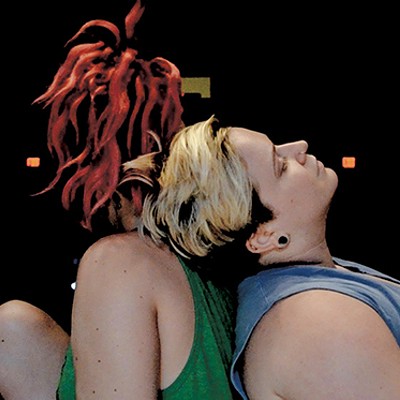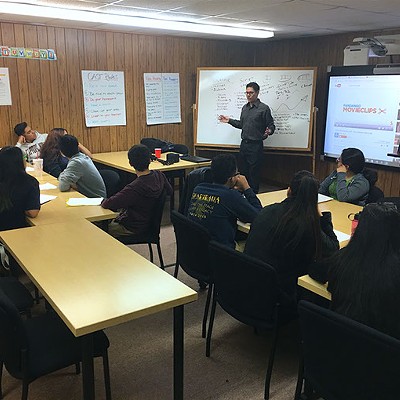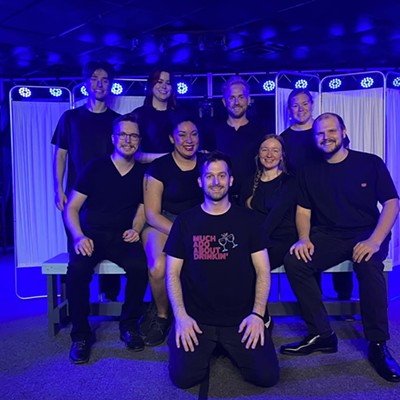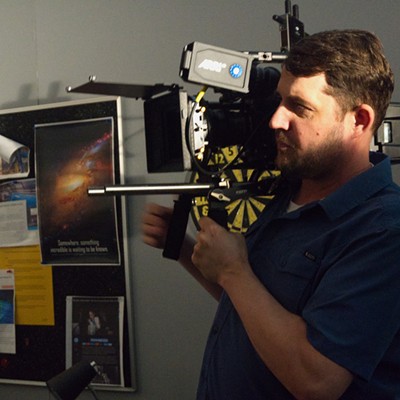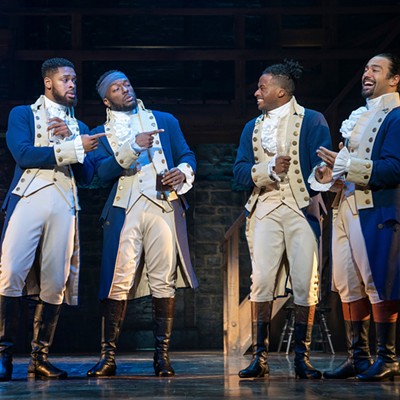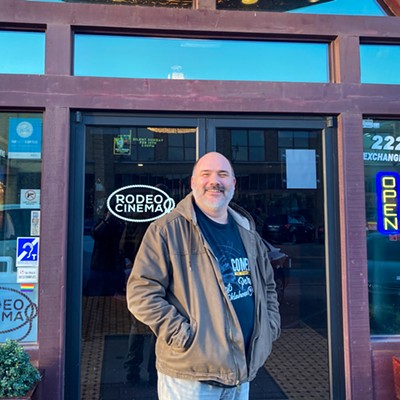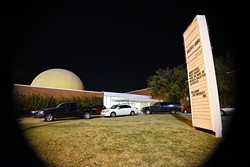
There is no lack of theater in the Oklahoma City area. In any given week, you can find Shakespeare dramas as well as classics such as Death of a Salesman, Of Mice and Men and A Christmas Carol.
However, one theater company aims to bring newer and unfamiliar plays to the metro and a change in how they are acted. The Marshall Experimental Company, founded this year by Artistic Director Daniel Leeman Smith, will open with its inaugural production Jackie, which runs through Saturday.
The play is a piece by German playwright Elfriede Jelinek about the life of Jacqueline Kennedy Onassis. The Marshall Experiment Company’s production is only the second in the United States.
“We’re more interested in the psychology and the physical representation of what it means to have a body that has lived so incredibly public and so incredibly destroyed by the media,” said Katherine Wilkinson, artistic director of Gale Theatre Company in Austin, Texas.
Wilkinson, along with Smith, co-directs the production.
“It’s more like an art installation in Jackie’s mind,” she said. “We are looking at how the mind and body are affected by being an icon.”
Originally written as a one-woman play, the production will feature three women, one of which is Wilkinson, acting as Kennedy Onassis and interacting with each other. Smith said this relates to how everyday people present themselves in different situations.
“There were different masks that Jackie had that we all have. We all have a public face,” Smith said.
The twist of the actresses follows the spirit of The Marshall Experimental Company’s philosophy. One aspect of the doctrine is devised.
“Devised is essentially a way of creating theater in a space that is not hierarchical,” Smith said. “It’s improv-based and is a lot about combining different types of art forms and different ways of writing stories that don’t necessarily have to begin with a written play or written script.”
The most important facets of devised theater are actor collaboration and the secondary nature of the script. Instead of the director and text being priority, it’s director and actors working together and the freedom to play with the script.
Full-body acting
“The most important voices in the room are the collaborators, not the playwright,” Wilkinson said.Another emphasis of the theater company’s technique is the Suzuki acting method. Created by Tadashi Suzuki, a Japanese theater director, writer and philosopher, the practice asserts that awareness of body and its movements are of high importance.
Current American theater is heavily rooted in the ideas of Constantin Stanislavski, director and theater administrator at Moscow Art Theatre in the early 20th century. In its simplest form, it asks actors to look internally to portray a character’s emotion. The technique did involve physical actions, but it began to fade, especially with the advent of the close-up in film.
“Everyone began to work from here up,” said Wilkinson, pointing to her chest then toward her head. “[Suzuki] wanted to create a method that focused particularly on the lower half of the body.”
The Suzuki method involves multiple exercises and practices to enhance acting through motion and strengthen your core and lower body.
“It’s physically rigorous; really hard,” Wilkinson said. “It’s like running a marathon. It’s holistic arts training.”
Smith agreed.
“It’s entirely anaerobic. You tell a story with your body as well as the text,” he said.
Smith said though Stanislavski’s acting method is still important, American theater’s infatuation with it has diminished its overall quality.
“It’s something that, I think, in certain degrees has been abandoned by American actors who focus on emotions and emoting and the text,” Smith said. “That is sometimes the only thing we focus on, and it can sometimes make a play or piece of theater very sleepy and boring.”
The techniques taught at The Marshall Experimental Company and Wilkinson’s Gale Theater in Austin have more to offer than teaching the methods.
“They’re [the methods] predicated on the idea that all art forms should have a practice,” said Smith. “Actors can sometimes be the only artists that go to school. They learn a craft and then leave it, versus a dancer who trains every day.”
The theater and collaboration offers an atmosphere to practice an art that doesn’t lend itself easily to practice. Wilkinson also cheers the positive points of collaboration.
“It’s also about creating communities,” Wilkinson said. “If you have a group of people that have a shared vocabulary, whether it’s Suzuki or anything, they have a way of speaking to one another and continuing making work together. Like in any field, the more you work together, the better it gets.”
Smith said the response he has received about the upcoming production is nothing but positive.
“People are really excited about something new and engaging. Audiences seem to be ready for it,” Smith said.
Tickets run $8-$12 and can be bought at marshallexperimental.org.
Print Headline: Double vision, Jackie shatters an American icon and scrutinizes its faceted shards.

